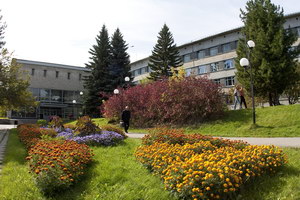One approach to the study of gas pricing based on gas supply systems modelling (the case of Northeast Asia)
The article deals with the approach to gas pricing analysis based on the use of optimization models of gas supply systems. The object of the study is the Northeast Asian gas market. The model of the excessive gas supply system in Northeast Asia is described. The primal problem of the model is to minimize the sum of gas production and transportation costs under the infrastructure constraints. The solutions to the primal problem are the volumes of gas produced in each production point and transported via each route. The solutions to the dual problem (dual variables or shadow prices) are node prices in the points of gas supply system, the producers’ rent and the transporters’ rent. It is highlighted that the dual analysis plays an important role. It allows evaluating price relations between the points of gas supply system, identifying export routs characterized by the highest rent, evaluating the competitiveness of suppliers in the different scenarios of technological development, energy policy and market environment. The analytical capacities of the dual analysis are illustrated by the study of the impact of “unconventional” gas development in the importing countries on the Northeast Asian gas market environment. When the costs of unconventional gas production rise, gas trade patterns change, more competitive players enter the market, and gas prices in all consumption points as well as producers’ rents increase. It is concluded that if importers seek to lower import dependency while keeping the same price level, they have to lower the costs of unconventional gas production by technological development and/or to subsidize the industry to make it more competitive. © The Authors, published by EDP Sciences.
Библиографическая ссылка Popov S.P., Maksakova D.V. One approach to the study of gas pricing based on gas supply systems modelling (the case of Northeast Asia) // E3S Web of Conferences. Vol.114. ID: 02004. 2019. DOI: 10.1051/e3sconf/201911402004
Проиндексировано: WOS
SCOPUS


